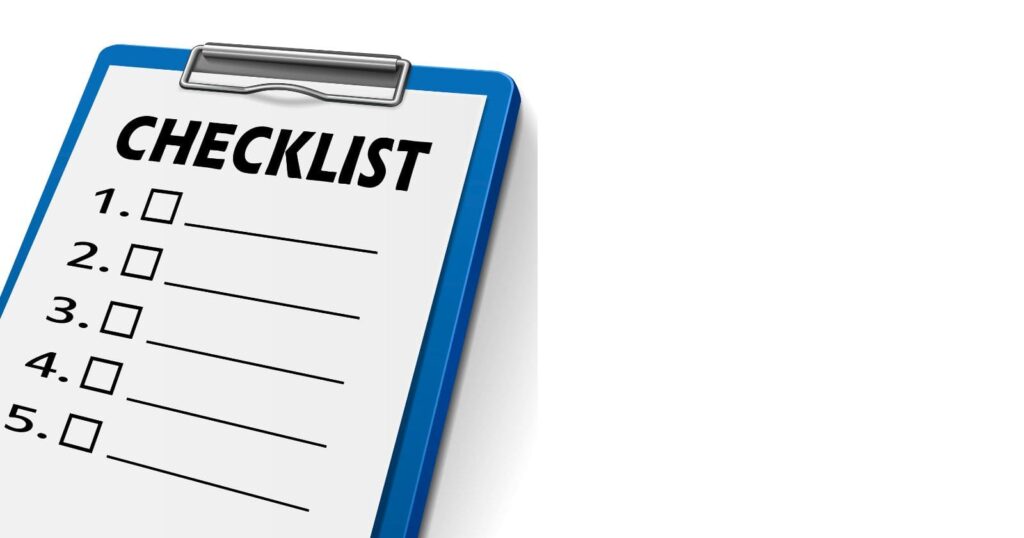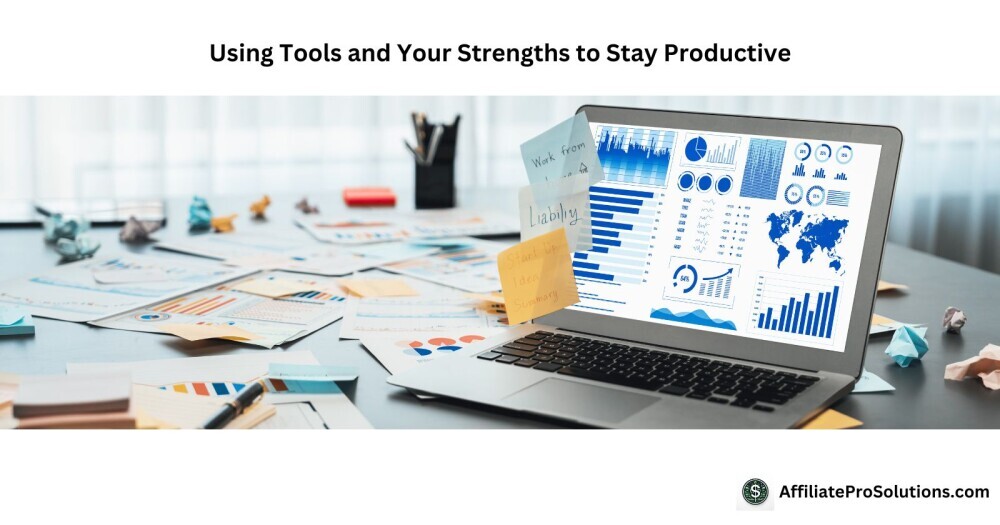Topic – Business Management
Post Reading Time – 14 Minutes
The benefits of working from home are easy to see. No long commutes anymore, a flexible schedule, and the comfort of your own place. But without proper time management, it’s easy to lose your concentration and let the day slip by. That’s why learning the effective time management tips for working at home can make such a difference.
Simple Time Management Tips For Working From Home
To work at home and get things done, you need to set a clear schedule, prioritize your tasks, and create a dedicated workspace free from any distractions. Break the larger tasks into smaller steps, use tools like timers or planners, and take regular breaks so you can stay focused.
Establish some boundaries with other people at home and stick to a routine to balance your productivity and personal time.
See the full Time Management Checklist here!
Your Post Take-Aways
- Set A Clear Schedule For Success – Learn how to structure your day with a clear plan to maximize focus and efficiency while working from home.
- Create A Productive Workspace – See how a distraction free area can improve your ability to stay on task and get more done.
- Prioritize Tasks Effectively – Understand how to identify and focus on the most important tasks to make the best use of your time.
- Stay Balanced With Breaks And Boundaries – Find out how regular breaks and setting boundaries with others can help maintain productivity and avoid burnout.
- Use Practical Tools To Stay Organized – Learn how timers, planners, and simple techniques can help you manage your time and stay on top of your workload.

Start Your Training
- Build Your Website & Earn Revenue
- Support, Tools & Training Included
- Complete with Business HUB
- Artificial Intelligence Writers
- My Personal Support
- No Risk Free Starter Account
When your office is also your home, staying productive can feel like a bit of a challenge. If you do things right, though, it can help you balance your work and personal life, avoid distractions, and get you through your daily tasks without feeling swamped.
If you need to take control of your time and make working from home more productive, the information here will show you how to stay organized and on track.
Many people struggle to stay organized when everything is happening in one place.
Questions like, “How can I stay at my most productive when working from home?” or “What strategies work best?” come up quite often, and for good reason too. Poor time management can easily throw off even the most motivated person.
By following some good time management tips for working from home, you can stay on top of your workload, create a better work-life balance, and make the most of the flexibility that remote work offers you.
Finishing tasks is important, but so is making the experience rewarding and enjoyable.
How to Build a Routine That Will Work for You
To create a daily schedule, you need to do more than just write down all of your tasks. It’s one thing knowing what you need to do and actually doing it. You need to find a balance that helps you manage both your work and your personal time effectively.
When you’re working from home, it’s very easy to get caught up in the household chores or take too many breaks, which can leave you feeling unproductive.
I know this firsthand. When my wife’s at home, she’s always shouting to ask if I want a snack or if it’s time to walk the dog!
To avoid things like this, try to make sure everyone in your household knows your schedule. Letting others know when you’re working can help reduce the interruptions.
Just say, “I’ll be busy until 3 PM,” and this can go far in setting boundaries and keeping your day on track. And stop worrying, I’ll have my snack and walk the dog when I’m done!
Separating your work time from personal time is just as important. Set aside specific hours to focus on work, and leave other times for errands, family, or relaxation.
This divide helps with your productivity, and it also makes it easier to unwind when your workday ends.
Try using tools like digital calendars or planners to organize your day. These tools help you see where your time is going, plan ahead, and stay on track.
A well-planned routine focuses on helping you stay organized and reducing stress, rather than cramming your day with too many tasks.

Setting Up Your Ideal Workspace at Home
If you’re in a position to have a dedicated workspace at home, you’ll find that it can make a huge difference when it comes to staying focused and getting your work done.
If you use your living room, kitchen, or bedroom also as your office space, distractions are everywhere. Setting up a specific area just for your work will help you separate your job from the rest of your day.
You don’t need a whole room to make it work either. A corner in the living room or even a table by the window can be just what you need. The important thing is that your workspace feels separate from where you relax.
This can help you get into the right mindset for your work and avoid the temptation to do other things instead, such as house chores.
Try to keep your workspace tidy and free from distractions. Turn off the TV, clear away any clutter, and make it a place where you can concentrate. I find that a clean space always makes it easier to stay focused and get things done.
It’s also worth spending a little bit of money on a comfortable chair and a decent desk.
Sitting in the wrong chair all day can leave you with aches and pains. I’ve had a bad back for years, so I know how that feels. It doesn’t do much for your productivity, so a good setup can help you stay focused and feel better at the end of the day.
Creating Boundaries Between Work and Relaxation
Finally, as you walk into your workspace, it should signal to your brain that it’s time to do your work. When you leave that space, it’s time to relax.
Training yourself to mentally switch between these two can help you stay productive during the day and unwind when all your work is done.
Additional Business Management Info & Resources
Tips to Stay Professional While Working from Home
Starting your day the same way every morning can help you stay focused and get into a positive and productive mindset. It’s important that you treat working from home like you would an office job. Okay, yes, you don’t have to wear a suit, but getting dressed and ready for work makes a big difference.
Wake up at the same time each day, and prepare yourself as if you’re going to the office. Carrying out this small step helps separate “home time” from “work time” and keeps you from feeling too relaxed to get things done.
Taking regular breaks is also important. At home, it’s easy to keep working without stopping, but short breaks can help you recharge. Use them to stretch your legs, grab a coffee, or step outside for some fresh air.
It’s also a good idea to have a set finishing time for your workday. Stopping at the same time each day keeps your work from spilling into your personal life. This simple but good habit can help you avoid burnout and make it easier to relax when you’re done.

How to Stay Focused and Avoid Distractions
I think we all know that working from home can come with its fair share of distractions. The TV can grab your attention in the background, or that list of chores that needs doing can drag you away. I know it can sometimes feel hard to stay focused on your work.
The first step here is figuring out exactly what’s pulling your attention away. Once you know your biggest distractions, you can make small changes to avoid them.
For example, if your workspace is in a noisy or busy area, try moving to a quieter spot.
Technology is another common distraction. Muting your phone or using apps to block certain websites during work hours can really help. Instead of checking messages or scrolling through social media whenever the urge hits you, set specific times to do it.
Having a plan makes it easier to avoid wasting time online. Personally, when I’m working (like now, as I write this), I turn my phone off completely.
If background noise bothers you, try a pair of noise cancelling headphones or put on some soft music. It’s a simple thing, but it can make a big difference in helping you concentrate.
Finally, keep your workspace tidy. A clean and organized area can help you stay focused and get through your tasks without feeling scattered.
The fewer distractions around you, the easier it is to stay on track.
Simple Ways to Set Goals and Stay Organized
Setting out clear goals is one of the best ways to manage your time, especially when you’re working remotely. SMART goals can help you figure out exactly what you want to accomplish and how to get there.
SMART
- S – Specific
- M – Measurable
- A – Achievable
- R – Relevant
- T – Timely
A good way to start is by prioritizing your tasks. Look at what’s most urgent or important first. This helps you tackle the things that really matter the most without wasting your time on less important tasks.
Daily to-do lists can also help you. Break down your workload into smaller, manageable steps. This makes it easier for you to stay on track, whether you’re planning for the day or the week.
Remember to stay flexible, as sometimes unexpected things can come up, and that’s okay.
It’s also important not to overload yourself. A long list of tasks can sometimes feel like too much and it can set you up for frustration. Instead, try to come up with a balanced plan that lets you get things done while still leaving room to breathe.
Make time to check in on your goals regularly. This gives you a chance to see what’s working and adjust things if your priorities change.
Revisiting your goals helps you stay motivated and gives you a sense of progress, which is always a good feeling.
Your Time Management Checklist For Working From Home

| Set A Daily Schedule | Plan your day in advance with clear start and finish times for work. Stick to your schedule as much as possible. |
| Create A Dedicated Workspace | Choose a quiet, clutter free area for work. Keep it organized and free from distractions. |
| Break Tasks Into Manageable Steps | Divide large tasks into smaller, actionable steps to stay focused and make progress more easily. |
| Use Timers Or Planners | Use tools like timers or a daily planner to track your progress and stay on top of deadlines. |
| Take Regular Breaks | Schedule short breaks to recharge. Even a few minutes away from your desk can help maintain focus. |
| Set Boundaries With Others | Let family or housemates know your work hours. Avoid interruptions by communicating your needs clearly. |
| Prioritize Your Tasks | Focus on the most important tasks first to make the best use of your energy and time. |
| Stick To A Routine | Build consistency by working at the same time each day. A routine helps balance productivity and personal time. |

Frequently Asked Questions – FAQs
How can I avoid distractions when working from home?
It’s not easy, but the first step is recognizing what distracts you the most. Is it the TV? Household chores? Social media? Once you know what they are, you can take steps to avoid them. For example, I make sure my workspace is quiet and free from distractions. I also turn off my phone completely while I work. Small adjustments like these can help you stay focused throughout the day.
What’s the best way to manage my time when working from home?
Start with a daily schedule. Plan out your day, including clear start and finish times, and stick to it. I find that breaking tasks into smaller, manageable steps helps me stay on track without feeling stuck. It’s also important to prioritize your tasks, so focus on the most important ones first when your energy is at its peak.
How do I maintain work-life balance while working from home?
Set boundaries. Let your family or housemates know your work hours, and stick to them. It’s also important to have a clear end time for your day, so work doesn’t spill over into your personal time. When I finish my tasks for the day, I make it a point to step away from my workspace completely. This helps me relax and get into home mode.
Do I really need a dedicated workspace at home?
Absolutely. It doesn’t have to be a separate room, but having a specific spot for work can make a big difference. A tidy and organized workspace helps you mentally switch into “work mode” and stay focused. Even a corner of your living room or a table by the window can work, as long as it’s free from distractions.
How can I make my work from home routine more productive?
The important thing is consistency. Try to work at the same time each day to build a routine. Use tools like planners or timers to stay organized and track your progress. And don’t forget to take regular breaks to recharge. I’ve found that even a quick five minute stretch or stepping outside can increase productivity and keep me focused.

Using Tools and Your Strengths to Stay Productive
Using the right tools can make a big difference in how you manage your time while working from home. Apps like task managers or timers can help you organize your day and stay on track.
Tools that break your work into intervals, like the Pomodoro method, can also make it easier to move between tasks without losing focus.
Delegating tasks is another really useful method that’s often overlooked. If there’s something that someone else can handle, let them take it on. This frees up more time for you and allows you to concentrate on the more important work where your strengths are needed the most.
How I Learned to Stay Focused and Get Things Done
Me? I always found that I was very easily distracted. There were no boundaries set up on my part, and when chores like shopping or putting gas in the car needed to be done, I’d just stand up and do them. I always had the intention of coming back and continuing my work, but after a break like that, I’d lose my momentum. I’d end up saying, “Eh, tomorrow again now,” and nothing ever got done. I was always behind!
It took me time to get it right. I had to put rules in place and set up a room in my home where I could lock myself away during my working hours. It wasn’t easy, but once I committed to sticking to my own guidelines, everything started to get better.
Now, I can focus, get my work done, and still enjoy my personal time after.
Scheduling Your Day Around Your Energy Levels
Understanding your own strengths and energy levels is just as important.
Think about when you’re naturally more focused or energized during the day, and schedule your most demanding tasks during those times. For example, I love to do my work in the morning. I try to get in around six hours each day and start at 8 o’clock in the morning. I do this because I know that come the afternoon, I want to relax, and my mind tends to wander.
So, working with your natural rhythm can make a big difference in how productive you feel.
Doing this also helps to simplify how you make decisions about your tasks. Try sorting them into four categories like the following:
- Delete anything unnecessary
- Tackle the quick tasks immediately
- Delegate tasks where you can
- Defer tasks that need more time or energy.
This keeps things manageable and helps you stay organized while maintaining your focus.
By using tools and playing to your strengths, you can stay more productive and make your work from home experience less stressful and more efficient.
I hope this post on time management tips for working at home has been of use to you.
Thank you, and please leave your thoughts and comments below.
Chris
Wealthy Affiliate
This is where my journey into the online world began, and it’s still the only community I trust for genuine, high quality guidance on building a business and earning money online.

The Wealthy Affiliate platform offers everything you need – training, hosting, tools, resources, and live assistance – all in one place.
If you’re ready to start your online business, this is the perfect place to begin.
I highly recommend Wealthy Affiliate for its unmatched support and resources.
About Chris Towers – Follow Me

My name is Chris Towers, and I’m here to help you make sense of affiliate marketing and build an online income. Through years of experience, I’ve learned what works, and I want to share those lessons here to help you succeed.
Related
- The 80 20 Rule For Time Management – Get More Done
- Time Management Tips For Working At Home – Get More Done
- What Is The 80 20 Rule About? – Learn How to Apply It
- The Importance Of Goal Setting For Business Websites & Blogs
Just to be open with you – My site includes links that are part of affiliate programs. If you click on these links and buy something, I might get a small commission. There’s no additional cost for you whatsoever. It’s a simple way to support the content I create for you. I hope you are OK with this & thank you for your understanding.





Thanks for the post!
I like the focus on setting up a schedule and creating a dedicated workspace.
I’ve found that those two things alone have made a difference in my productivity. I’ve also started breaking my tasks into smaller steps, which has helped me stay focused.
One of the biggest changes I made was setting the boundaries you talk about with my family. It’s helped with the distractions I was having. Now, I treat my work hours just like office hours.
It’s made a big difference in how much I can get done.
Thanks for your comment!
It sounds like you’ve made some changes that really work. Setting up boundaries and treating work hours like office hours has been a big help for me too. It really helps you to separate work time from your personal time.
Breaking down tasks into smaller steps has been a big one for me too. It keeps things manageable and helps me stay a lot more focused than I used to be.
Keep doing what works for you!!
Chris
I found this post helpful thank you.
Setting up boundaries and having a dedicated workplace in my home are things I’ve tried, and they do actually make a difference.
I liked the idea of the time blocks you mentioned though, simple but good for balancing work and personal stuff.
Can you share any ideas for staying focused in a noisy or busy place where distractions are harder to control? Sometimes I need to work outside my office and with the public around, and I find this difficult.
Thanks
Hi and thanks for your comment.
It’s good that you’ve already tried setting boundaries and created a workspace, and yes, it really does make a difference when working from home.
For staying focused in noisy or busy places, I know what you mean. One thing that’s worked for me in the past is using noise canceling headphones. They’re good for blocking out background noise, especially in public spaces.
If headphones aren’t for you, try to find a quieter spot, like a corner of a café or somewhere with less people. Even just trying to face away from busy areas can help reduce any distractions.
Sometimes, when I need to do some work in a busy place, I try to focus on finishing one thing at a time, rather than trying to do everything at once. It helps me stay on track, even with the interruptions around.
I hope these tips help a bit!
Chris